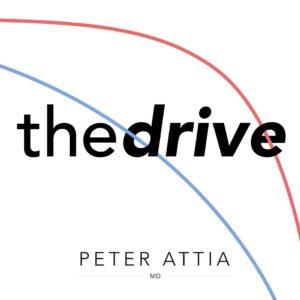
In this episode of “The Prof G Pod with Scott Galloway,” Scott discusses Apple’s investment in healthcare, the pros and cons of sending children to private schools, and how to introduce social media to children. He also addresses the potential acquisition of Peloton by Apple or Amazon. Listeners can submit questions by emailing a voice recording to the Network.
Apple’s investment in healthcare is a logical move due to its strong brand fit and technological capabilities. With the launch of the health app and the Apple Watch, Apple has already established itself in the personal health care space. The company’s focus on mental health through its latest update to the Apple Watch further demonstrates its commitment to the well-being of its users. Additionally, Apple’s reported development of Quartz, an AI-powered health coaching service, shows its ambition to expand its presence in the healthcare industry. However, competition with Amazon is expected, as both companies recognize the disruptable nature of the U.S. healthcare market. The potential acquisition of Peloton by either Apple or Amazon could also play a role in their healthcare strategies.
Choosing between private and public schools involves considering various factors. Private schools can be expensive, but they may offer an International Baccalaureate curriculum that increases a student’s chances of getting into a top university. However, the value of this curriculum is debated. On the other hand, public schools can provide equally good outcomes when socioeconomic factors are taken into account. The quality of public schools may vary depending on location. When making a decision, it is important to prioritize logistics, convenience, the quality of teachers, and the potential for meaningful friendships for the child, rather than solely focusing on the reputation of the school.
The speaker advises delaying social media usage for children as long as possible, particularly for girls who tend to be more vulnerable to its negative effects. Social media can contribute to self-harm, teen depression, and even suicide. While parental involvement is crucial, it is not enough to prevent these negative consequences. Schools should consider implementing bans on phone usage up to a certain age to protect children’s mental health. Limiting screen time is challenging but necessary to ensure their well-being. Open communication between parents and children about online activity is essential, along with providing support without judgment. Parents should be vigilant about online bullying and mental health issues, as they can often go unnoticed. The speaker believes that exposing children to technology too early may lead to regret, considering the problems caused by technology companies in areas such as income inequality and election interference.
Apple’s investment in healthcare reflects its brand fit and technological capabilities. The competition between Apple and Amazon in the healthcare space is expected to intensify, given the disruptable nature of the U.S. healthcare industry. When deciding between private and public schools, factors such as cost, curriculum, and the quality of education should be carefully considered. Introducing social media to children should be approached with caution, with a focus on delaying usage, limiting screen time, and fostering open communication. Parents and schools play vital roles in protecting children from the negative effects of social media. Overall, these topics offer valuable insights into the intersection of technology, education, and healthcare.